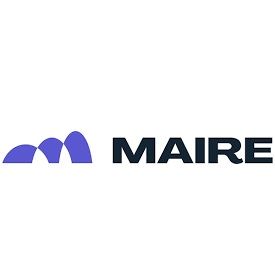Supported by NEXTCHEM, KT awarded EPC contract for SAF, renewable diesel project in Germany

June 26, 2024
BY MAIRE S.p.A.
MAIRE announces that KT - Kinetics Technology (Integrated E&C Solutions), also leveraging the technological know-how of NEXTCHEM (Sustainable Technology Solutions), has been awarded by HOLBORN Europa Raffinerie GmbH an engineering, procurement and construction (EPC) project to develop an hydrotreated vegetable oil (HVO) complex inside the existing HOLBORN’s refinery in Hamburg, Germany.
Once completed, the plant will produce approximately 220,000 tons per year of high-quality renewable diesel and sustainable aviation fuel (SAF) using waste and residues feedstocks, biomasses and the residues of the agribusiness industry, as well as low carbon hydrogen.
Advertisement
The plant is expected to be operational in early 2027, including the pre-treatment and HVO units, and the interconnecting infrastructure with the existing facilities. The award has a value of around USD 400 million.
HVO, also known as renewable diesel, is a fuel made from waste and residue feedstocks, which is processed to have the same chemical properties of fossil-based diesel, with the advantage of decreasing the reliance on petroleum and reduce the environmental impact. It is used worldwide as a drop-in biofuel in diesel vehicles with no engine modifications. Furthermore, renewable diesel can drastically abate greenhouse gas emissions compared to fossil-based diesel, meeting the sustainability criteria of the European Union’s Renewable Energy Directive (RED III).
Advertisement
MAIRE will leverage both its Sustainable Technology Solutions’ technological know-how as well as its Integrated E&C Solutions’ engineering and execution distinctive capabilities to deliver an HVO complex which will bring several advantages in terms of operational efficiency and carbon footprint reduction to HOLBORN Refinery.
Alessandro Bernini, CEO of MAIRE Group, commented: “This important success confirms the pivotal role of MAIRE Group in the Energy Transition, and its ability to take on the decarbonization challenges in hard-to-abate sectors, by leveraging on its unparalleled technological portfolio and know how integrated by world-class engineering and execution capabilities.”
Related Stories
Neste and DHL Express have strengthened their collaboration with the supply of 7,400 tons (9.5 million liters) of neat, i.e. unblended, Neste MY Sustainable Aviation Fuel to DHL Express at Singapore Changi Airport starting July 2025.
CoBank’s latest quarterly research report, released July 10, highlights current uncertainty around the implementation of three biofuel policies, RFS RVOs, small refinery exemptions (SREs) and the 45Z clean fuels production tax credit.
The U.S. Energy Information Administration maintained its forecast for 2025 and 2026 biodiesel, renewable diesel and sustainable aviation fuel (SAF) production in its latest Short-Term Energy Outlook, released July 8.
XCF Global Inc. on July 10 shared its strategic plan to invest close to $1 billion in developing a network of SAF production facilities, expanding its U.S. footprint, and advancing its international growth strategy.
U.S. fuel ethanol capacity fell slightly in April, while biodiesel and renewable diesel capacity held steady, according to data released by the U.S. EIA on June 30. Feedstock consumption was down when compared to the previous month.
Upcoming Events










